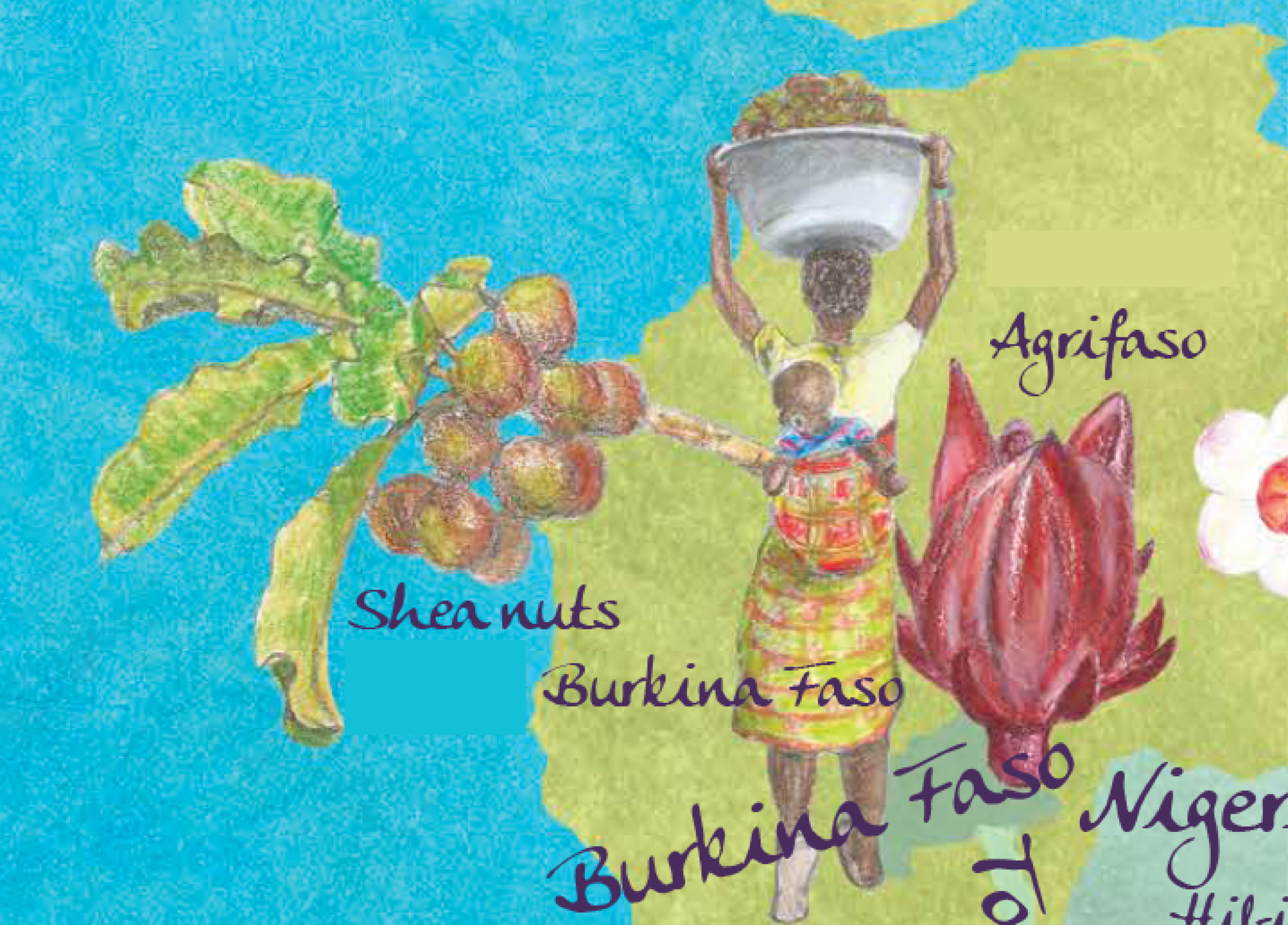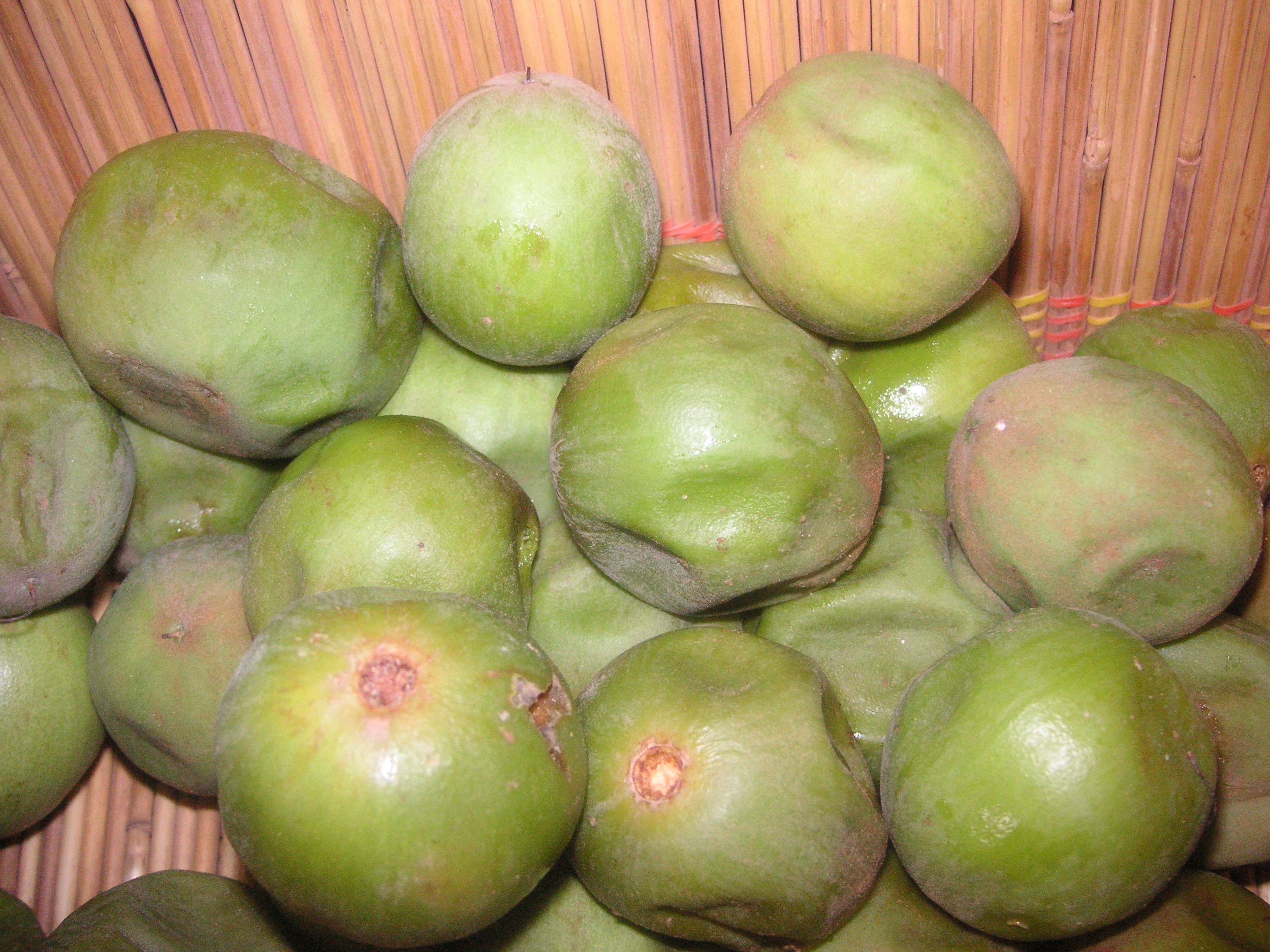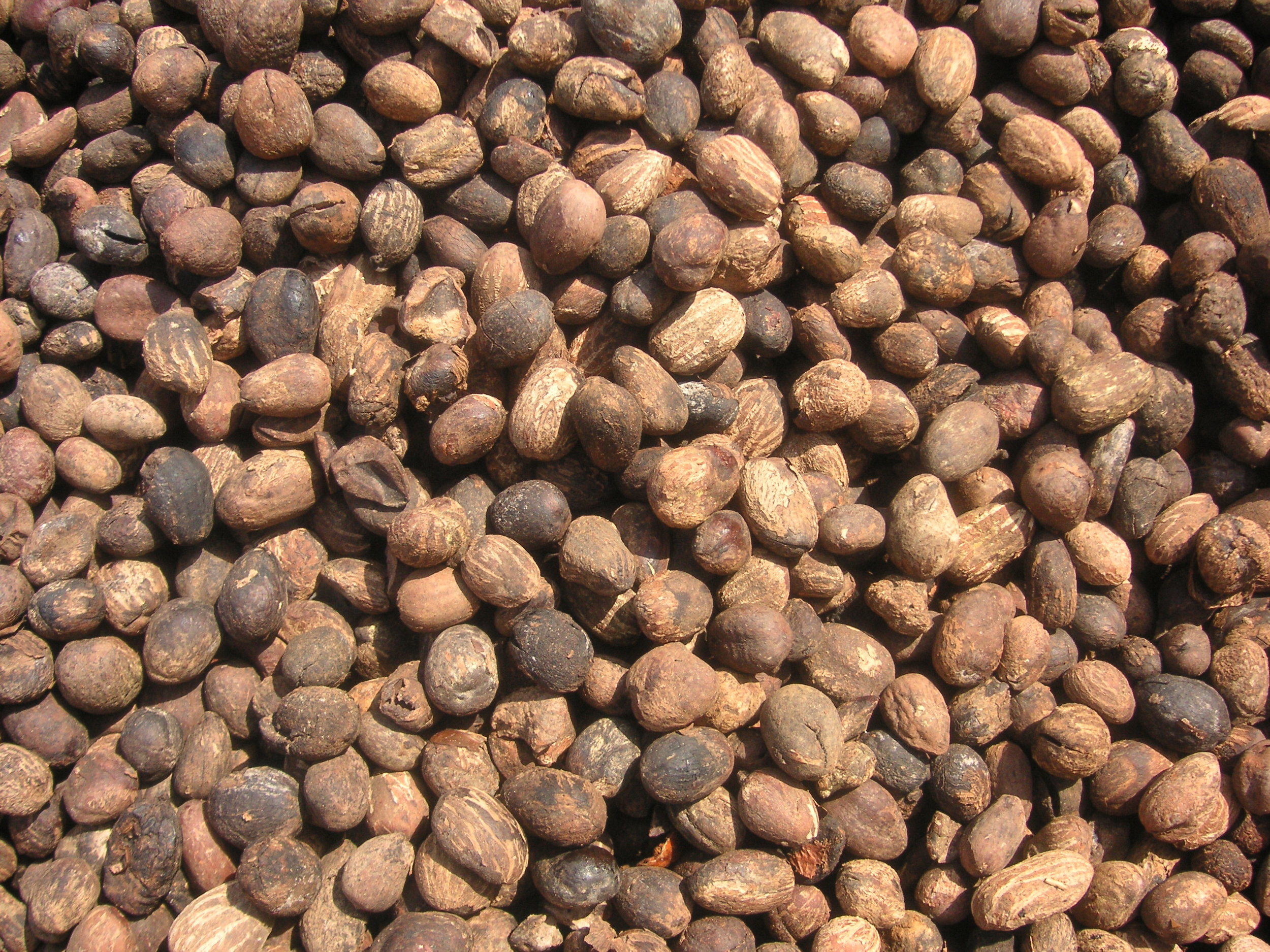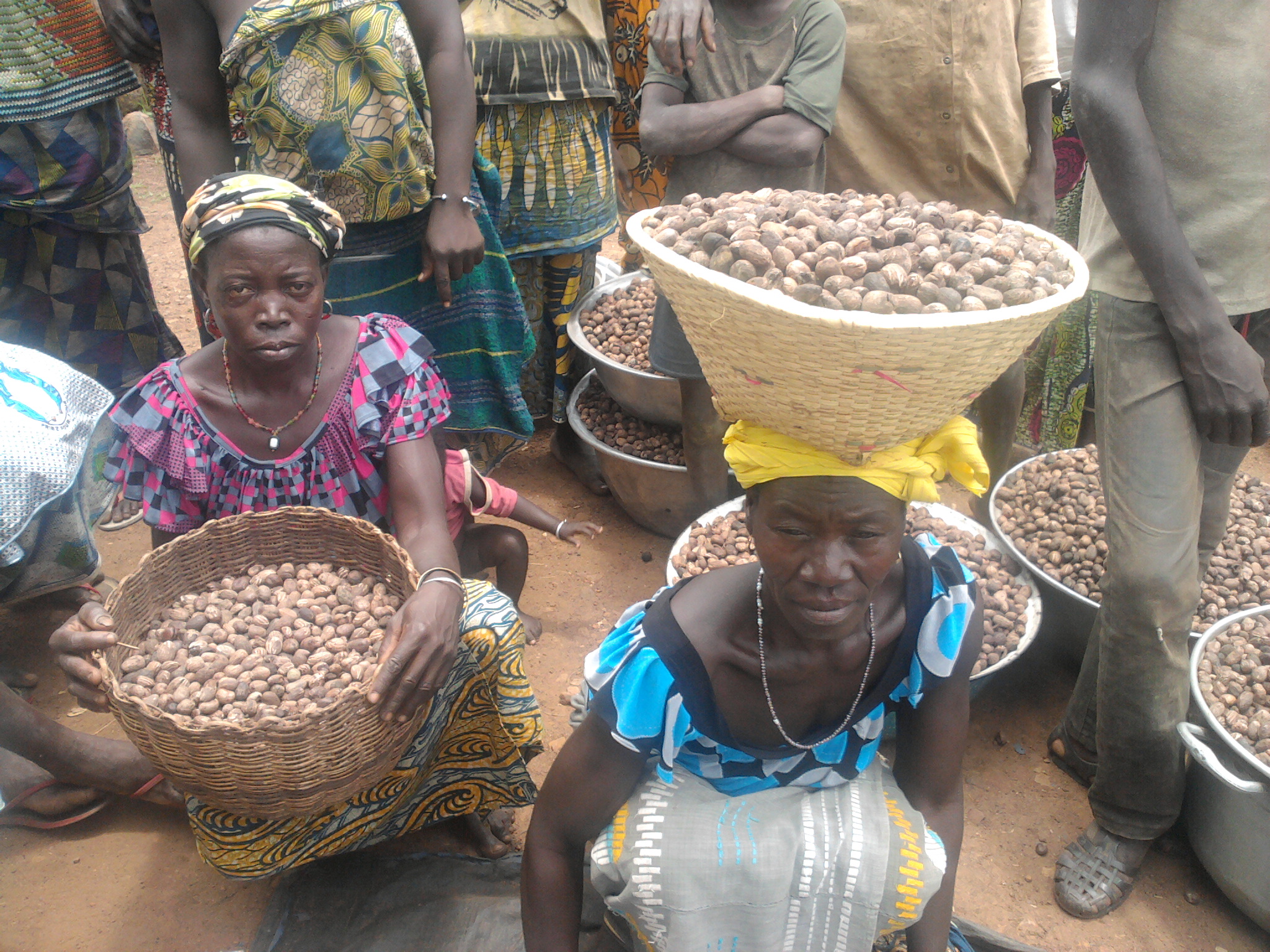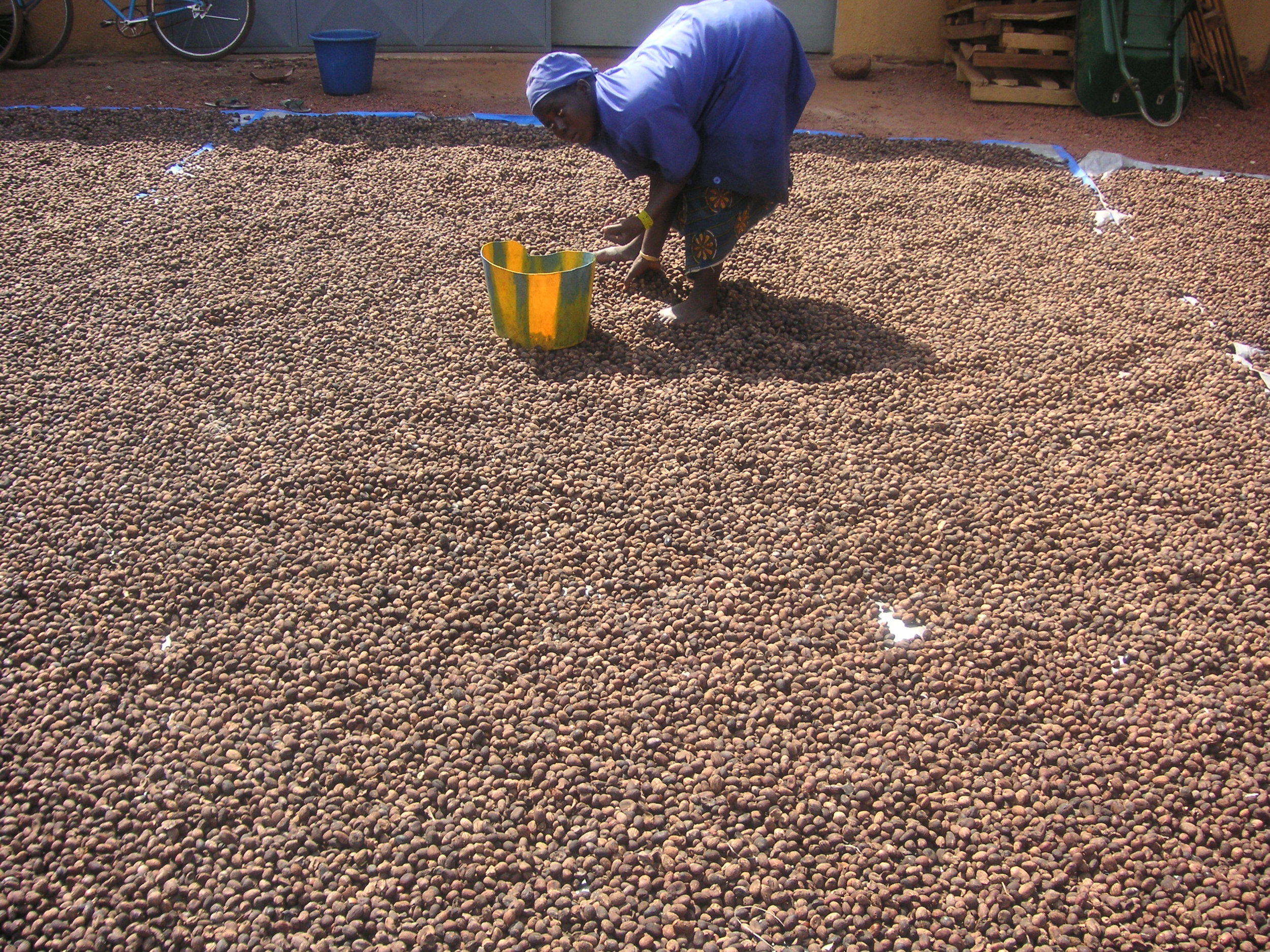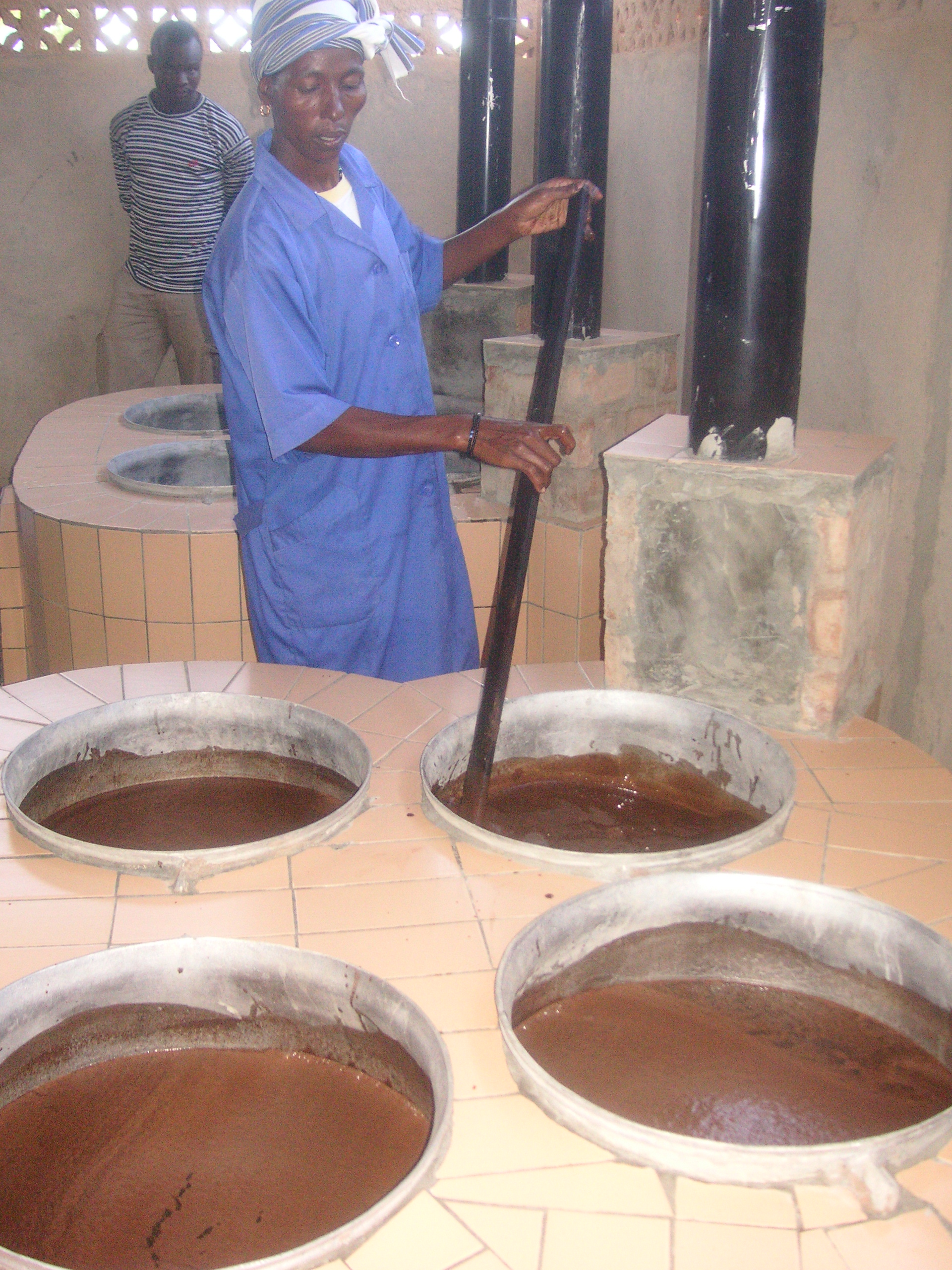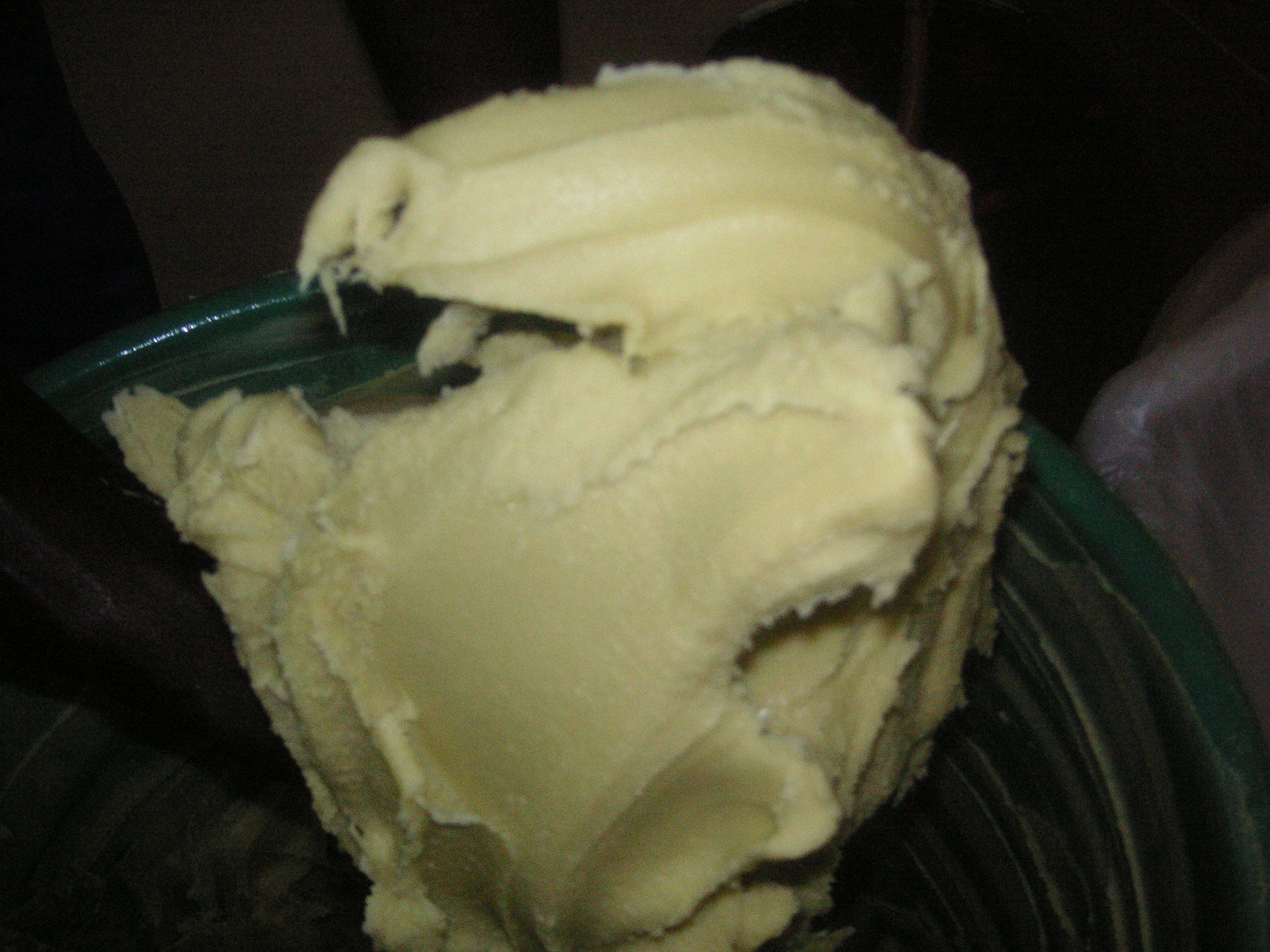Shea nuts
Empowering Women in Burkina Faso: the example of Agrifaso
Found in the savannahs of West Africa, and stretching in a belt from Senegal in the west to Uganda and the Ethiopian highlands in the east, the rather small shea tree can be found with its leather-like leaves and round green fruits that turn brown when ripe. The tree only flowers once it is 15-20 years old but remains productive for more than 100 years.
In the region where Burkina Faso-based company Agrifaso sources its Shea nuts, women collect the ripe nuts by hand when they have already fallen to the ground, starting the process in May and ending around August or September. These women collectors put the nuts in a large basin and then carry it on their heads back to their homes in the nearby village. The nuts they leave behind, which are plentiful, are allowed to germinate and develop into new shea trees. In this part of the world, the Shea nut collection process is gentle on the forest, with women traveling by foot into the stands of trees and back home, and never using shears, knives, vehicles or machines in their activities.
Women involved in Shea nut collection are organized into groups per village, and the nuts provide an important additional income for their families. During the rest of the year, their income is obtained from selling fruits and vegetables, and brewing a type of beer made from Sorgho. Since Shea nut is in high demand for skincare, medicines and as a cooking fat, its price has been increasing in recent years, offering rural people a tangible way to improve their livelihoods.
Agrifaso buys the nuts from the women and then the company cleans, sorts, dries and presses them, selling the resulting Shea butter to cosmetics and food companies in Europe. The company also trains the women each year on conserving biodiversity, and they guarantee to buy the nuts through a direct contract they establish with the groups composed of 4000 women from 21 villages.
Women and their families also benefit from company paid health and social insurance and Agrifaso further invests in local projects including wells, upgraded furniture and materials in village schools, and even solar panels.
The communities benefit from long-term contractual relationship with a buyer that is committed to ethical sourcing practices that respect people and biodiversity, and Agrifaso benefits from a long-term source of quality Shea nuts for its thriving business.
UEBT has 2 member companies in Burkina Faso working with Shea nuts : Agrifaso and Olvea Burkina Faso

